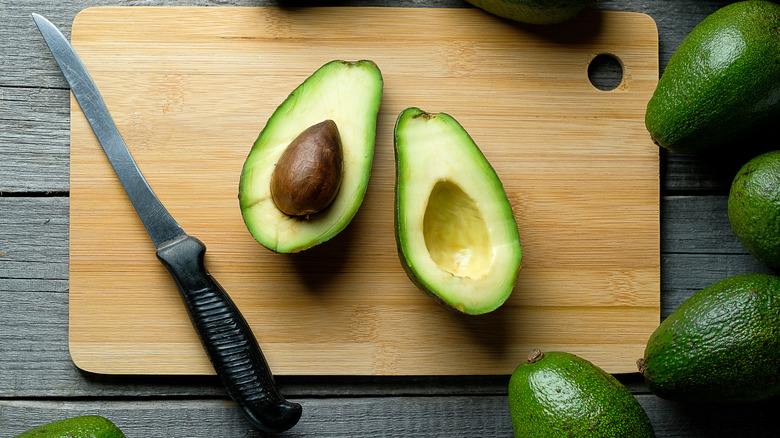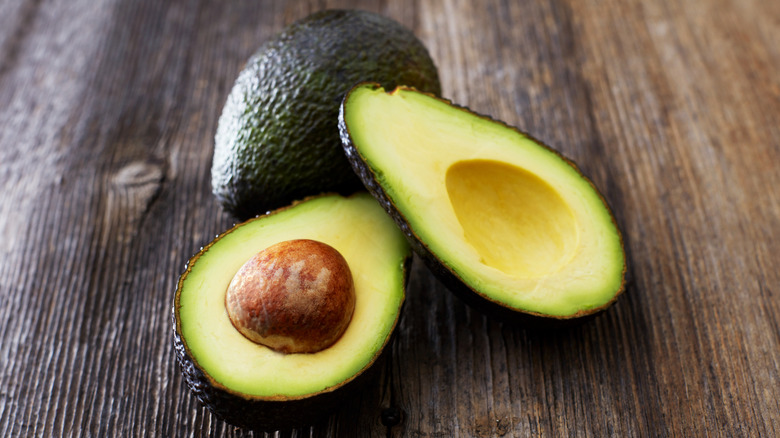The Mesoamerican Lore Of The Avocado
If you were to pick up an avocado, you might first think you were holding an unassuming ingredient that's great for guacamole or a good avocado tomato salad — but not much more. Not so fast! Before you start to cut it up, take a moment to appreciate the rich cultural history of this bumpy green fruit. The avocado has long been a staple of Mesoamerican culture, and not just in ancient kitchens. For instance, Mayan belief maintains that the dead would eventually come back as trees, leading some people to plant avocados over the burial spots of their family members.
One legend from what is now the northern part of South America in Guyana relates the story of a man named Seriokai, who was a serious fan of avocados. He spent much time in the jungle, gathering the fruits. His wife was apparently less enthused with her husband's laser focus on the fruit and decided to run away with a tapir. In the midst of yet another avocado harvest, she attacked Seriokai with an ax and ran away with her new beau.
Though he was wounded, Seriokai recovered and tracked the fleeing woman and tapir. He found that his wife had dropped seeds as she ran. Seriokai found avocados along their path, going from full-grown trees to mere seedlings as he got closer. Eventually, he found them, shot the tapir with an arrow, and now, all three live on as constellations in the sky above.
Avocados have eartheir connotations in some cultures
Farther to the north of Maya territory, the Mexica (also referred to as the Aztec people) believed that the avocado imbued strength in those who consumed it. The reasoning? It looks an awful lot like a certain male body part (or two) that was associated with physical power and virility. Sometimes those parts may have needed a boost from a helping of the fruit, as Mexica people also commonly believed that avocado was an aphrodisiac. It was also reportedly believed to increase the fertility of both women and men who consumed the fruit, further cementing it as a rather romantic piece of produce on the Mesoamerican menu.
Perhaps that association is also why some Mayan rulers to the south in Pusilhá would have called themselves the "lords of the avocado," taking a cue from an avocado glyph in their city-state's name. Other places in Mexica territory also seem to have gotten similar place names referencing the fruit, though that may be due more to the abundance of avocados grown in an area than anything romantic. Either way, whether you choose to go to a restaurant like La Fiesta Restaurant & Cantina in Waco, Texas, to enjoy one of the best avocado dishes in America or make simple avocado toast at home, you'll have some rich history to share with your dining companions.

